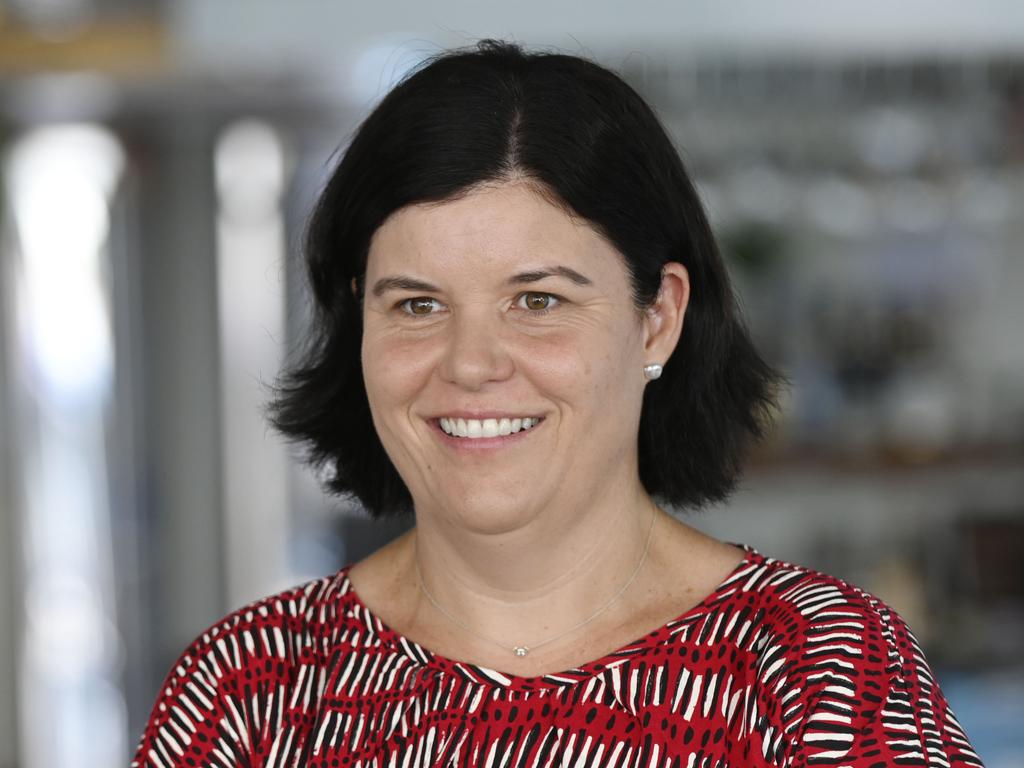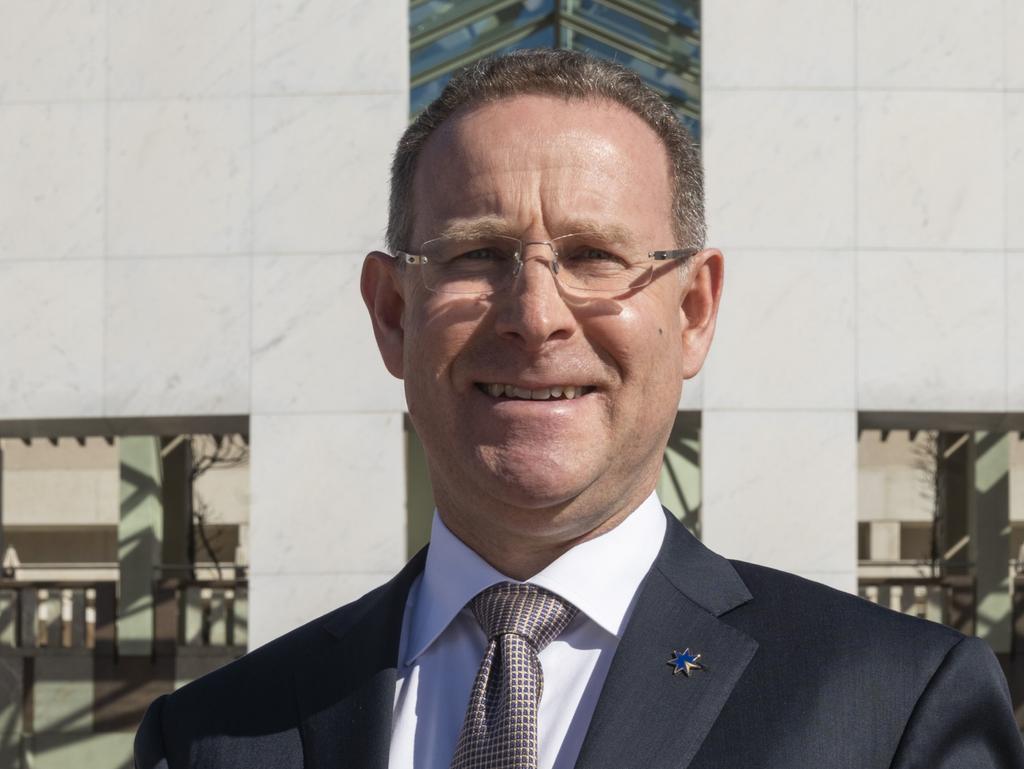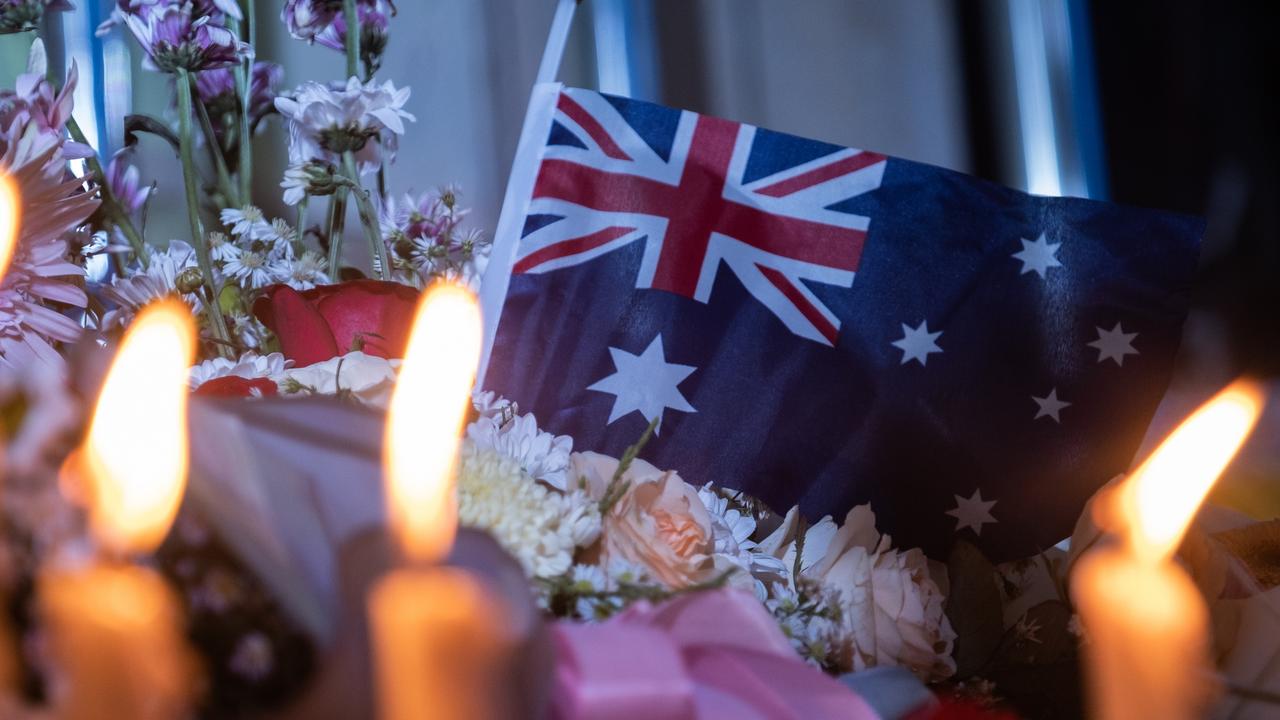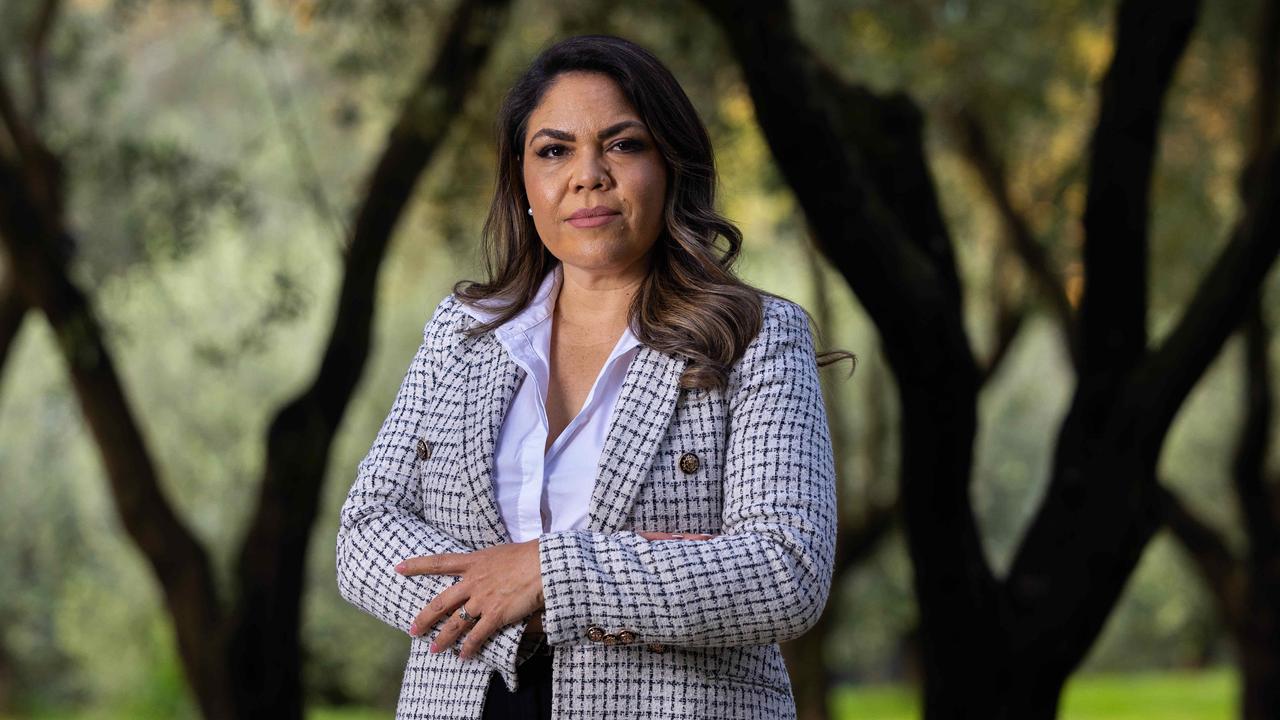Go-slow on vaccination makes sitting ducks of Queensland towns
Vaccination rates in large parts of Queensland are dangerously low despite warnings Covid-19 could be circulating by Christmas.
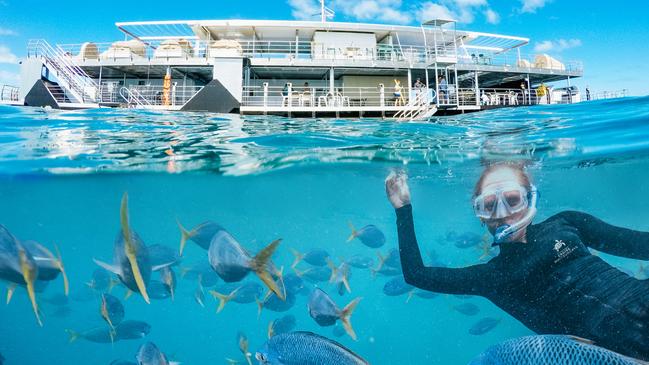
Vaccination rates in large parts of Queensland remain dangerously low despite warnings from health officials that Covid-19 could be circulating in the community by the Christmas holidays.
Figures obtained by The Australian show the adult population of some remote pockets of the state have significantly lower vaccination rates than average.
In Hope Vale, a local government area north of Port Douglas, just 30 per cent of the adult population has had one dose of the Covid-19 vaccine. Only 5.2 per cent are fully vaccinated.
In the Wujal Wujal Aboriginal Shire, the figures show that while 61.1 per cent of the adult population has had their first dose, only 7.9 per cent has had both.
Even in Douglas, which takes in the Port Douglas regional centre, just 48.9 per cent of the adult population is fully vaccinated.
The low vaccination rates are of particular concern to the medical community and public health experts because they are in areas where hospitals are already reporting regular capacity issues.
The Australian reported that major hospitals in Townsville, Cairns, Mackay and Mount Isa had sounded separate “code yellow” capacity issues on Tuesday.
The new figures come as the country passed a key milestone, with more than 80 per cent of the adult population having received at least one dose of the Covid-19 vaccine. That is an increase from 65.3 per cent four weeks ago.
More than 58 per cent of the adult population is fully vaccinated. In NSW, that figure is 70 per cent, paving the way for the lifting of health restrictions on Monday.
Queensland has the equal lowest rate of fully vaccinated adults in the country – 49.5 per cent – alongside Western Australia, public data shows.
In the Whitsundays, one of Queensland’s most popular tourist destinations, just 35 per cent of people have had two jabs.
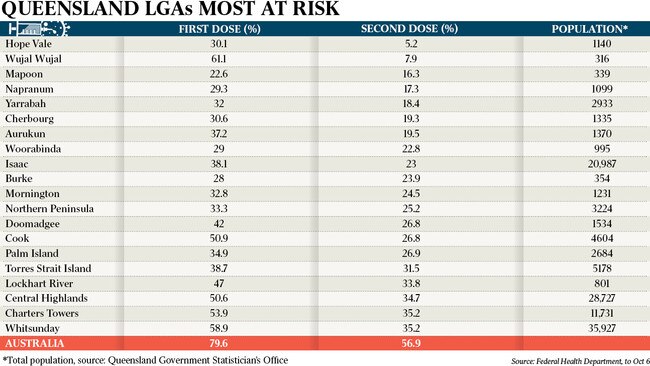
Stretched hospitals and low vaccination rates are a dangerous combination, according to the Australian Medical Association’s Council of Rural Doctors’ chairman, Marco Giuseppin.
“The system as it is currently will not cope, when you already have hospitals stretched to breaking point without Covid cases,” Dr Giuseppin said. “Our largest concern as we move into the next phase of the pandemic is how we manage outbreaks in small, remote communities that are far from hospitals.”
Regional communities in Queensland, Australia’s most decentralised state, are more exposed to outbreaks because hospitals are already strained and the majority of public ICU beds are in the southeast corner.
Dr Giuseppin said although Queensland had one of the best medical retrieval services in the world, it would quickly become “saturated” in an outbreak.
Concern about lagging vaccination rates is increasing in the face of plans to reopen the international border in November and widen home quarantine trials.
Rural doctors have warned that country hospitals will be overwhelmed and some communities with low vaccination rates might need to be “ring-fenced” when borders open.
Jeanette Young, Queensland’s chief health officer, said although the state had so far avoided widespread Covid-19 transmission, it would likely take hold before the end of the year.
“Eventually, and it possibly won’t be long, we will see Delta variant come in and it will not be able to be controlled,” she said.
“The only control … will be the number of people who are vaccinated.”
Dr Young will join Health Minister Yvette D’Ath on a regional vaccination tour this week to Mackay and Rockhampton. Ms D’Ath said communities with low vaccination rates would become “infectious hotspots”. “We will learn to live with Covid but what we don’t want is the pandemic of the unvaccinated,” she said. “If we have 90 per cent in some areas of Queensland and 60 per cent in other areas, what is going to happen to those communities with 60 per cent?
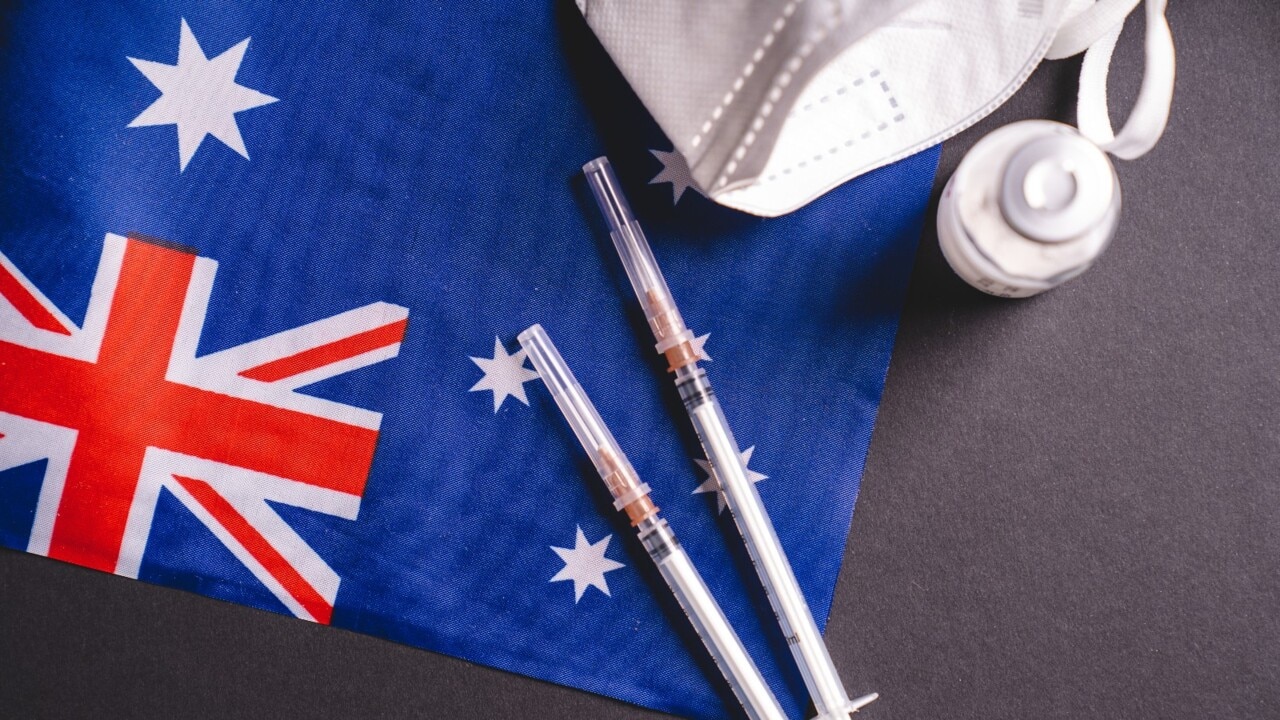
A funding stoush between the states and commonwealth continued on Wednesday as Premier Annastacia Palaszczuk said hospital capacity issues needed to be dealt with “at a national level”.
A deal between the commonwealth and the states guaranteeing funding – even if elective surgeries were paused during a case surge – expired in June.
Ms Palaszczuk said all states had demanded more funding and accused Scott Morrison of singling out Queensland because of the upcoming federal election.
“Hospitals will be under extreme pressure when the Delta outbreak happens,” Ms Palaszczuk said.
“This is what is coming right across the country, that is why we are putting a lot of effort into preparing our hospitals and now is the time for greater co-operation between the commonwealth and the states.”
Ms Palaszczuk said she wanted vaccine rates to be “uniformed across the state”.
Robbie Katter, whose electorate covers northwest Queensland, said hesitancy could not be the sole reason vaccine rates in his community were so low.
“I think at some point in the future we need to open borders and it is regrettable that after almost two years we seem to be stuck in neutral,” he said.
“We still don‘t have rapid testing in place and hospitals are not resourced to handle any big influx.”
Amalie Dyda, University of Queensland epidemiologist, said the state’s success at suppressing the virus had fostered complacency.
“That really does feed into people not getting vaccinated; we saw in NSW vaccination numbers shoot through the roof when the number of cases went up.
“Vaccination is not a blanket fix but it is really good at stopping severe disease and hospitalisations,” Dr Dyda said.
More Coverage



